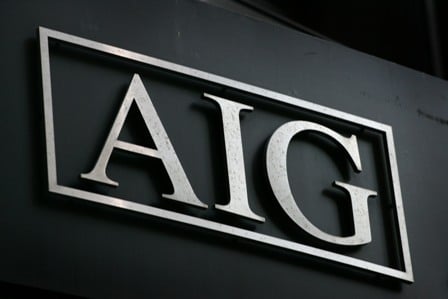AIG's decision not to join a suit against the U.S. government is good news for the insurer's brokers, writes Bruce Kelly.
A decision by the board of directors at American International Group Inc. not to sue the U.S. government for allegedly giving short shrift to the giant insurer in its 2008 bailout is good news for its network of independent broker-dealers.
The insurer issued a statement today stating that it will not join a $25 billion investor suit led by Starr International Group Inc. and former AIG chief executive Maurice “Hank” Greenberg. According to lawsuit, the federal government deprived investors of tens of billions of dollars because of the allegedly sweet deal the Fed concocted when it purchased an 80% stake in the company for $182 billion.
Starr International had demanded that AIG join the suit.
“In considering and ultimately refusing the demand before us, the board of directors properly and fully executed our fiduciary and legal obligations to AIG and its shareholders,” Robert S. “Steve” Miller, chairman of the AIG board, said in the statement. “America invested in 62,000 AIG employees, and we kept our promise to rebuild this great company, repay every dollar America invested in us and deliver a profit to those who put their trust in us.”
A little more than a week ago, AIG launched a media blitz with the tagline “Thank you, America.” Turning around and suing the U.S. government would have severely undercut that message. What's more, joining the suit would have dramatically undermined the recent hard work and diligence by AIG's independent-broker-dealer network of 7,000 registered representatives and investment advisers to stabilize and rebuild since the painfully embarrassing and costly bailout.
Now simply called Advisor Group, this is the same network of broker-dealers that used to operate under the umbrella of AIG Advisor Group. Public anger over the Fed's role in propping up the insurer led to the decision to lop off the AIG name from the broker-dealers' brand. That name change coincided with the wholesale re-branding of one of its broker-dealers in 2009, SagePoint Financial Inc., which used to be called AIG Financial Advisors Inc.
Before the bailout, Advisor Group CEO Larry Roth regularly touted AIG's fortress of a balance sheet as a reason why reps should flock to the AIG broker-dealers. But the company's brand took a huge hit when management, in September 2008, indicated that the insurer was about to collapse.
The massive meltdown left broker-dealers despondent and shattered, particularly the renamed SagePoint. About a quarter of that firm's brokers left in 2009, with at least another 5% leaving in 2010. The firm has recently gained ground and now has about 1,800 reps and advisers.
“The AIG broker-dealers have done a very good job to improve their brands since 2008, all the while distancing themselves from” the parent company, said Larry Papike, president of third-party recruiting firm Cross-Search.
An AIG lawsuit against the federal government would have been “the last thing anybody at the AIG broker-dealers wanted,” he said. “This has been universally panned [by staff] as, 'Oh, no, not now!'”
Others agree.
“For AIG to insert itself into this discussion, just at a time when the company finally started to emerge from being the most vilified company in the world, was simply inexplicable,” said Larry Taunt, who left AIG's SagePoint in 2010 to join another broker-dealer.
“I don't know how much was spent on the recent Thank You ad campaign, but they might as well have burned that money" if AIG had gone through with the suit, said Mr. Taunt, chief investment officer and chairman emeritus of Regal Financial Group, who spoke before AIG made its announcement today.
AIG spokeswoman Linda Malamut noted that under applicable law, as well as according to certain court rulings, the AIG board had to consider and respond to Starr's demand.
The four firms SagePoint, FSC Securities Corp., Royal Alliance Associates Inc. and the recently acquired Woodbury Financial Services Inc. are on track to produce about $1.2 billion in total revenue for 2012. That compares with roughly $39 billion for the entire company.







